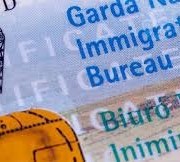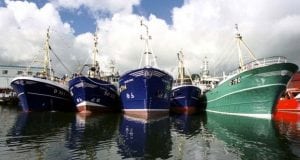In a notice posted on the ISD Webpage on 14th October 2022 it was announced that a Review of the Atypical Scheme for non-EEA Crew in the Irish Fishing Fleet has been conducted and published.
The report is a detailed assessment of the Scheme and has taken into account the submissions and views of various stakeholders, including the fishing industry, the relevant state bodies and the permission holders themselves.
It is apparent from the report that this is a complex area, with many stakeholders.
The report has been jointly welcomed by the Minister for Justice, the Minster of State at the Department of Enterprise, Trade and Employment and the Minister for Agriculture, Food and the Marine.
The notice states that the key recommendation of the report is that:
‘the employment of non-EEA crew in the Irish Fishing Fleet be provided for under the Employment Permit system, instead of the Atypical Working Scheme.’
Since its inception in 2016 there have been multiple and serious concerns regarding the operation of the A typical working scheme for non-EEA fisherman in the State. The legality of the operation of the scheme has also been challenged through High Court litigation.
The report outlines that 337 persons have been granted permission under this scheme since 2016. Half of the persons are Filipino nationals, with 85% being from either Philippines, Ghana Indonesia and Egypt.
In 2019, a number of changes were made to the scheme to attempt to alleviate the concerns and the serious issues raised by permission holders and NGOs. It also followed a report by Maynooth University into the area , which can be accessed here https://www.maynoothuniversity.ie/sites/default/files/assets/document/Experiences%20of%20Non%20EEA%20Workers%20in%20the%20Irish%20Fishing%20Industry.pdf
The report also highlights the media coverage of the industry and the risk of Ireland facing sanctions by U.S. authorities after a U.S.-based human rights campaign group filed a report with American authorities alleging exploitation of migrant workers aboard Irish fishing vessels.
The report has concluded that the most appropriate course of action is to end the A typical working scheme for Non-EEA fishermen.
The recommendation is that persons may apply to work and reside in the State as fisherman, by obtaining an Employment Permit from the Department of Trade, Enterprise and Employment. This will involve the removal of fishermen from the ineligible employment list and will result in the salary required to employ a fisherman in the state rising in line with Employment permit legislation, the minimum allowable salary being €30,000 per annum based on 39 hours per week. It would also result in the oversight of granting permission to individuals to work in the Stats as fisherman would be with the DETE. This would seem appropriate given that Department’s responsibility for the oversight of compliance with employment legislation.
Many stakeholders in their submissions argued that Stamp 4 should be granted on a general basis to all individuals currently here in the State under the Scheme.
The report has concluded that it cannot recommend a general granting of Stamp 4 permission on a universal basis to the holders of A typical permission to work in the State as fisherman. It has been concluded that this would treat this group of persons more favourably that other persons resident in the State on A typical permission, such as nurses and locum doctors.
The report has stated that it is view of the relevant authorities that it would not be possible to grant Stamp 4 generally to all persons resident in the State on A typical permission, as to grant a general Stamp 4 to healthcare workers would be in breach of international commitments.
Therefore, it is not considered ‘prudent to make one cohort of holders of permission under the Atypical Working Scheme eligible for a permission which cannot, due to international commitments, be made available to other holders of identical permission.’
Through the employment permit system, persons can apply for Stamp 4 permission after two years of holding critical skills permit and after five years of holding a general employment permit.
The recommendation is that non-EEA sea fishers could be eligible to apply for Stamp 4 permission after two years, which is the same criteria applied to critical skills permit holders.
We submit that the individuals who have already resided in the State for five years under this scheme should be granted Stamp 4 at this stage on an individual basis. We submit that the Minister has the ability to grant such permission in an individual case pursuant to Section 4(7) of the Immigration Act 2004 in an individual case.
The report states that 120 persons appear to be eligible to apply for naturalisation at this stage, given their period of residence in the State under this scheme. We submit it would be fair and reasonable that those individuals would be granted Stamp 4 pursuant to Section 4(7) of the Immigration Act 2004, given the processing time for naturalisation application and also the potential impact of absences from the State for the purposes of being granted naturalisation.
The full review can be accessed here
https://www.irishimmigration.ie/wp-content/uploads/2022/10/Report-of-the-Review-Group.pdf
The Minister’s notice can be accessed here:
If you have been impacted by the above, please do not hesitate to contact Berkeley Solicitors.



